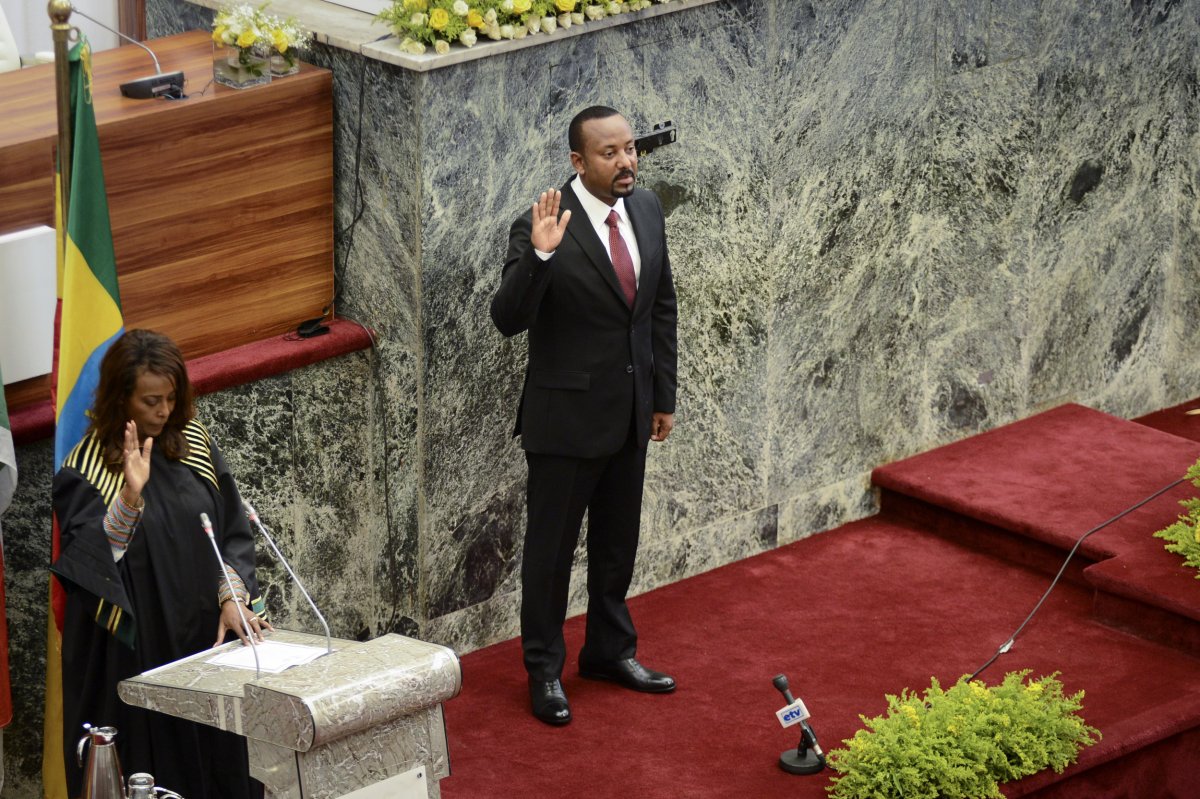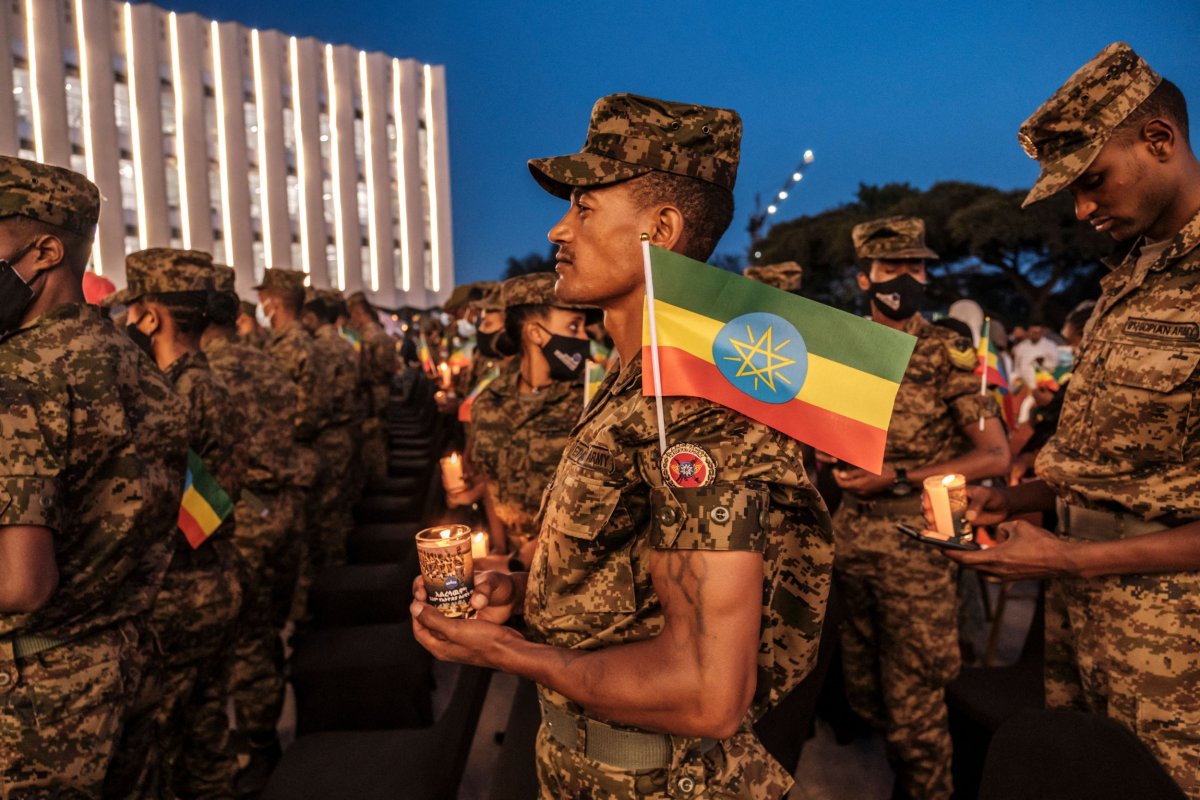Ethiopian Prime Minister Abiy Ahmed has gone to the battlefront in the country's ongoing war against forces from the northern Tigray region, the government announced Wednesday, two days after he said martyrdom could be needed.
Abiy, 45, is a former soldier and the winner of the 2019 Nobel Peace Prize. He announced his intention to be on the front lines Monday. A government spokesman told the Associated Press Abiy arrived at the front Tuesday, though did not specify the exact location.
The Tigray People's Liberation Front, the former ruling party of Ethiopia that Abiy designated a terrorist group, has been advancing to Addis Ababa in recent weeks, looking to strengthen their negotiating power or to get Abiy to step down. Tens of thousands have died in the war so far.
Spokesman Legesse Tulu said Wednesday that the deputy prime minister, Demeke Mekonnen, is handling the government's day-to-day operations while Abiy is absent.
"The situation is extremely dangerous," Adem Abebe, a researcher with the International Institute for Democracy and Electoral Assistance, said to the AP. "If (Abiy) gets hurt or killed, it's not just the federal government that will collapse, the army will as well."
Awol Allo nominated Abiy for the Nobel Prize when he made peace with neighboring Eritrea. Allo told the AP, while he didn't rule out the possibility that Abiy was directing the war from a safer location, a move to the front fits with Abiy's sense that he was destined to lead.
"He may be seriously considering becoming a martyr," Allo said.
For more reporting from the Associated Press, see below.

Tens of thousands of people have died in the war between Ethiopian federal and allied troops and fighters from the country's Tigray region. The prospect of the ancient nation breaking apart has alarmed both Ethiopians and observers who fear what would happen to the often turbulent Horn of Africa at large. Countries including France, Germany and Turkey have told their citizens to leave immediately.
Abiy also invited Ethiopians to join him—the latest call for every able citizen in the country of more than 110 million people to fight. There have been reports of hurried military trainings and allegations of forced conscription in recent months, while analysts have warned that, with the military apparently weakened, ethnic-based militias are stepping up.
U.S. envoy Jeffrey Feltman told reporters on Tuesday that he fears that "nascent" progress in mediation efforts with the warring sides could be outpaced by the "alarming" military developments.
The war began in November 2020 when a growing political rift between the Tigray leaders and Abiy's government broke into open conflict. Abiy quietly allowed soldiers from Eritrea to enter Tigray and attack ethnic Tigrayans, resulting in some of the worst atrocities of the war. He denied the Eritreans' presence for months.
The Tigray forces have said they want Abiy out, among other demands. Abiy's government wants the Tigray forces, which it has designated as a terrorist group, to withdraw to their region as part of their conditions.
"Unless there is some kind of divine intervention, I don't see any chance for a peaceful resolution through dialogue because the positions are highly polarized," said Kassahun Berhanu, professor of political science at Addis Ababa University, who added he believed Abiy's announcement about going to the front is "aimed at boosting popular morale."
Millions of civilians are trapped and going hungry amid the fighting. Ethiopia's government has blockaded the Tigray region for several months, saying it fears that humanitarian aid will end up in the hands of fighters, while hundreds of thousands of people in the neighboring Amhara and Afar regions are beyond the reach of significant aid as Tigray forces advance through those areas.
One target of the Tigray forces appears to be the supply line from neighboring Djibouti to Ethiopia's capital, and the U.S. envoy warned the fighters against cutting off that road or entering Addis Ababa.
That could be "catastrophic" for the country, Feltman said to reporters on Tuesday.
African Union envoy Olusegun Obasanjo also has been mediating but has not spoken publicly about his work in recent days.

Uncommon Knowledge
Newsweek is committed to challenging conventional wisdom and finding connections in the search for common ground.
Newsweek is committed to challenging conventional wisdom and finding connections in the search for common ground.
About the writer
To read how Newsweek uses AI as a newsroom tool, Click here.








